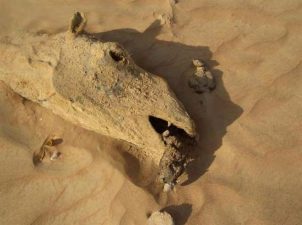 We interviewed Karl Amman about illegal wildlife trafficking at the Westgate Mall in Nairobi about two years ago. Since then, increasingly violent poaching incidents have been linked to terrorist groups such as al-Shabaab, which recently claimed responsibility for an armed attack on the Israeli-built shopping center in Kenya.
We interviewed Karl Amman about illegal wildlife trafficking at the Westgate Mall in Nairobi about two years ago. Since then, increasingly violent poaching incidents have been linked to terrorist groups such as al-Shabaab, which recently claimed responsibility for an armed attack on the Israeli-built shopping center in Kenya.
Speaking in an interview with Al Jazeera, al-Shabaab’s spokesperson for military operations Sheikh Abulaziz Abu Muscab acknowledged their responsibility for the attack on Nairobi’s Westgate Mall – a haven for foreign expats, including media, embassy employees and NGO workers from a raft of well-meaning organizations.
“The place we attacked is Westgate shopping mall,” Abu Muscab told Hamza Mohamed.
“It is a place where tourists from across the world come to shop, where diplomats gather. It is a place where Kenya’s decision-makers go to relax and enjoy themselves. Westgate is a place where there are Jewish and American shops. So we have to attack them.”
At least 61 civilians and six Kenyan law enforcement officials were killed in the attack, and roughly 62 of the 175 injured remain in hospital. A four day standoff has ended, six attackers are said to be dead, and the police have 11 suspects in custody, according to the most recent press reports.
But as many commentators note, it seems more questions than answers have been raised by the Al-Qaeda-linked group’s attack.
Asked whether they were hoping that Kenya will move its forces out of Somalia, Abu Muscab said, “That question is not for us to answer. That is for the Kenyan government to answer. It is up to them to withdraw their soldiers or not. If they don’t withdraw, attacks like this will become common in Kenya. It is possible if they don’t withdraw attacks like this will happen in Kenyan cities and towns every day.”
This particular attack was likely funded by Al-Qaeda, according to Kenya’s Foreign Minister Amina Mohamed. She told Al Jazeera in a separate interview that al-Shabab was not acting alone at Westgate, and that the attack was part of an international terrorism campaign – not an isolated local incident.
But conservationists and intelligence officials warn that increasingly sophisticated poaching syndicates are linked with terrorists groups, including al-Shabab, who need a solid cash stream in order to continue their operations. Hillary Clinton, who has taken on elephant and rhino poaching, is expected to say as much at an upcoming conference on Thursday.
The Westgate crew had grenades, 44 magnums and general purpose machine guns (GPMGs), and 15,000 rounds of ammunition per terrorist (there were reportedly six, all dead), according to Margot Kiser, a local journalist who quotes a senior member of the Kenya Defense Force.
Tsavo Trust Co-founder and Chief Operations Officer, Ian Saunders has a long history not just in wildlife conservation but also with the British military and counter-insurgency efforts in Afghanistan. He is also one of the leading voices in a new push to treat poaching syndicates as a threat not only to biodiversity, but to global security as well.
Speaking at a U.S. congressional hearing last November, Saunders warned that the rising cost of elephant tusks (ivory) makes the trade attractive for terrorist groups that need funding.
Mentioning al-Shabab in particular, Saunders says that poaching could potentially fund terror not only in East Africa, but throughout the globe.
“Al-Shabab is estimated to have between 5,000 and 10,000 core fighters,” said Saunders.
Three years prior to the Westgate offensive, they killed 76 people in Kampala, Uganda in two synchronized attacks, and have since continued their reign of terror with members hailing from disparate tribes and a wide range of nations.
In response to al-Shabab aggression, Kenya shut down the group’s access to the Kismayo port, which was a major stream of revenue for them. Among other things, they benefitted from charcoal sold in massive quantities to the Middle East. Now they have to look elsewhere to fund their activities.
“In Afghanistan opium has been a revenue source for the Taliban,” says Saunders. “In East Africa, we are increasingly seeing that elephants are now in the gun sights of Somalia and localized gangsters. The market for ivory is now at an unprecedented level – as is the poaching.”
He said that if al-Shabab is affiliated with the ivory racket, which he believes they are, the demand and market for legalizing ivory give them potential to carry out an increasing number of attacks.
“…22 kilograms of ivory now equates to well over $50,000,” said Saunders. “…only 1.6 tusks would be required to fund a double terrorist attack on two embassies. That equates to just one middle aged elephant.”
Image of Westgate Mall in Nairobi, Youth Journalism




